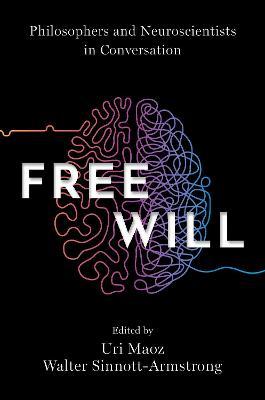Free Will: Philosophers and Neuroscientists in Conversation

Free Will: Philosophers and Neuroscientists in Conversation
Walter Sinnott-Armstrong is Chauncey Stillman Professor of Practical Ethics in the Department of Philosophy and the Kenan Institute for Ethics at Duke University. He holds secondary appointments in Duke's Law School and Department of Psychology and Neuroscience. He is a Partner Investigator at the
Oxford Uehiro Centre for Neuroethics and a Research Scientist with the Mind Research Network in New Mexico. He has served as co-chair of the Board of Officers of the American Philosophical Association and co-director of the MacArthur Law and Neuroscience Project. He earned his bachelor's degree from
Amherst College and his doctorate from Yale University. He has published widely, but his current work focuses on moral artificial intelligence, free will and moral responsibility, and various topics in moral psychology and brain science. His most recent books with Oxford University Press are Think
Again: How to Reason and Argue, and Clean Hands: Philosophical Lessons from Scrupulosity. He co-directs Summer Seminars in Neuroscience and Philosophy and co-teaches a MOOC, Think Again, with over 1,000,000 registered students. Uri Maoz is a computational neuroscientist, who researches volition, decision-making, and moral choice. He joined Chapman University in 2017 as an Assistant Professor of Computational Neuroscience and Psychology at Crean College and at the Institute for Interdisciplinary Brain and Behavioral
Sciences, where he uses combination of empirical techniques (e.g., EEG, intracranial recordings, behavioral studies) and modeling to develop a computational account of volition, with an emphasis on the decision-making processes that lead to voluntary action and on the role of consciousness in such
processes. In particular, he uses machine-learning to carry out online, real-time, closed-loop analysis of neural data, as it is being recorded. He is further interested in the legal, ethical, and philosophical implications of this work.
PRP: 215.90 Lei
Acesta este Prețul Recomandat de Producător. Prețul de vânzare al produsului este afișat mai jos.
194.31Lei
194.31Lei
215.90 LeiLivrare in 2-4 saptamani
Descrierea produsului
Walter Sinnott-Armstrong is Chauncey Stillman Professor of Practical Ethics in the Department of Philosophy and the Kenan Institute for Ethics at Duke University. He holds secondary appointments in Duke's Law School and Department of Psychology and Neuroscience. He is a Partner Investigator at the
Oxford Uehiro Centre for Neuroethics and a Research Scientist with the Mind Research Network in New Mexico. He has served as co-chair of the Board of Officers of the American Philosophical Association and co-director of the MacArthur Law and Neuroscience Project. He earned his bachelor's degree from
Amherst College and his doctorate from Yale University. He has published widely, but his current work focuses on moral artificial intelligence, free will and moral responsibility, and various topics in moral psychology and brain science. His most recent books with Oxford University Press are Think
Again: How to Reason and Argue, and Clean Hands: Philosophical Lessons from Scrupulosity. He co-directs Summer Seminars in Neuroscience and Philosophy and co-teaches a MOOC, Think Again, with over 1,000,000 registered students. Uri Maoz is a computational neuroscientist, who researches volition, decision-making, and moral choice. He joined Chapman University in 2017 as an Assistant Professor of Computational Neuroscience and Psychology at Crean College and at the Institute for Interdisciplinary Brain and Behavioral
Sciences, where he uses combination of empirical techniques (e.g., EEG, intracranial recordings, behavioral studies) and modeling to develop a computational account of volition, with an emphasis on the decision-making processes that lead to voluntary action and on the role of consciousness in such
processes. In particular, he uses machine-learning to carry out online, real-time, closed-loop analysis of neural data, as it is being recorded. He is further interested in the legal, ethical, and philosophical implications of this work.
Detaliile produsului










